
Advertise on podcast: Analysis
Rating
4.6 from
Categories
Country
This podcast has
300 episodes
Language
Publisher
Explicit
No
Date created
2007/10/26
Average duration
29 min.
Release period
19 days
Description
Programme examining the ideas and forces which shape public policy in Britain and abroad, presented by distinguished writers, journalists and academics.
Podcast episodes
Check latest episodes from Analysis podcast
How to Dismantle a Democracy
2024/02/19
Democracies do not die in military coups. They are dismantled slowly, by libel laws, through tax audits, and procedure. Democracies are dismantled by bureaucrats and judges, not by soldiers and heavy-handed policing. It has always been thus, from ancient Rome to present-day Tunisia. The program outlines the tricks of the trade that imperceptibly kill democracies – and how examples in Mexico, Turkey, India and Poland illustrate that the autocratic playbook is nearly always the same. With Anne Applebaum, historian and staff writer at The Atlantic, Amy Slipowitz, research manager at Freedom House, Greta Rios, co-executive director, People Power, David Runciman, professor of politics at the University of Cambridge, Professor Larry Diamond, Stanford University, Jennifer Gandhi, professor of political science and global affairs, Yale University, Renata Uitz, professor of law and government at Royal Holloway, The University of London.
Presenter: Matt Qvortrup
Producer: Bob Howard
Editor: Clare Fordham
more
What is 'British culture'?
2024/02/12
'What is "British Culture?” I was born in the UK and have lived here for 40 years, and yet, as a British Asian person, I am constantly told “we are not integrating”. Not integrating into what culture exactly?'
Bushra Shaikh runs a charity, is a business-owner and is also a writer and commentator. When she posted this question on social media, two million people viewed it, she received thousands of replies, but no clear definition of British Culture. Some respondents mentioned the food, while others defined it by quoting literature or history. But those answers were often just lists; of meals. books, names and dates.
Is "culture" a synonym for race? How can British people of colour integrate, and what does that mean?
Americans put their hands on their hearts, gaze at the stars and stripes and identify with freedom, while the French look to liberty, equality, and fraternity, but is there a British equivalent? Bushra speaks to Historians, cultural commentators, as well as both the UK's newest citizens, and people who can trace their British family roots back hundreds of years, to try to find out what British culture means to them.
Presenter: Bushra Shaikh
Producers: Ravi Naik and Sean Johnson
Editor: Clare Fordham.
Contributors:
Robert Colls, emeritus professor of history at De Montfort University
Lionel Shriver, novelist and journalist
Pen Vogler, food historian and writer
Dr Bernard Trafford, retired headteacher and former member of the citizenship advisory group
Anton Dani, Conservative councillor and former mayor of Boston
Robert Owen, Vice Lord Lieutenant of Merseyside
Professor Alice Foucart, Principal Investigator, Psycholinguistics, Universidad Nebrija, Madrid
Dr Tessa Dunlop, historian and broadcaster
Keith Richardson, Author
more
Has the family had its day?
2024/02/05
British politicians love to invoke the family, from John Major's "Back to Basics" campaign, to New Labour's "hardworking families" - and now a prominent strain of the Conservative right says parents sticking together for the sake of the children is "the only possible basis for a safe and successful society".
By turning family values into a political football, are they in denial about the way society has developed this century? For decades, single-person households have been the fastest-growing demographic and younger generations are re-defining romantic commitments and their purpose.
Is the erosion of traditional structure around marriage and family a destructive thing for society, or does it offer the kind of freedom and individual choice denied to previous generations?
Presenter: Zoe Strimpel
Producer: David Reid
Editor: Clare Fordham
Contributors:
Danny Kruger, Conservative Member of Parliament for Devizes and Co-Chair of the New Conservatives: Committing to a Better Politics.
Dr. Ruth Beecher, Historian of Modern Britain and the United States, Birkbeck, University of London
Prof. Deborah Cohen, Richard W. Leopold Professor of History at Northwestern University.
Prof. Sasha Roseneil, Vice Chancellor of the University of Sussex.
Prof. Sylvie Fogelj-Bijaoui, sociologist specialising in gender, human rights, the family and the kibbutz.
Daisy Lees, resident of Old Hall
Chris Lees, resident of Old Hall
Rob Connigale, resident of Old Hall
more
What's the future of nudge?
2023/11/20
The term nudge has become a byword for the application of behavioural science in public policy, changing how governments the world over create policies designed to encourage, or nudge, people to make choices that better benefit themselves and society as a whole.
Over the last fifteen years much has been learned about what works, as well as what doesn’t, when it comes to this way of supporting us in making decisions about our health, our money and how we lead our lives.
Magda Osman is Principal Research Associate at the Cambridge Judge Business School, The University of Cambridge, and Visiting Professor at Leeds University Business School. Through her work she has examined the problems, and the opportunities, with this way of creating policy. She talks to those working in the field of behavioural change and examines what has been discovered over the last fifteen years, what concerns remain around this way of doing things and what the future is for the behavioural change methods known as nudge.
Presenter: Professor Magda Osman
Producer: Steven Hobson
Editor: Clare Fordham
Contributors:
Dr Michael Hallsworth, Managing Director, Behavioural Insights Team Americas
Colin Strong, Head of Behavioural Science, Ipsos and Professor of Consumer and Behavioural Psychology, Nottingham University Business School
Rory Sutherland, Vice Chairman, Ogilvy
Laura Dodsworth, author and journalist
Professor Neil Levy, Senior Research Fellow, Oxford Uehiro Centre for Practical Ethics, University of Oxford
Katy Milkman, James G. Dinan Professor, The Wharton School of the University of Pennsylvania
more
Can reading really improve your life?
2023/11/13
Most educational research now suggests that reading for pleasure is strongly linked to a child’s future outcome, educational success, and even wellbeing. But the latest studies also show that reading for pleasure is at its lowest level for twenty years.
Why has this happened in a country that's produced more successful children's books than any other? From Paddington, to Harry Potter, the Chronicles of Narnia to Alice in Wonderland, and of course, the Gruffalo, the list is vast. Is a lack of access to school and local libraries the problem, too few books at home or the rise of phones, tablets and game consoles?
What can schools, government, the media and parents do to help foster a love of reading that could help children throughout their lives? Author and former Children's Laureate Julia Donaldson investigates.
Presenter: Julia Donaldson
Producer: Ravi Naik
Editor: Clare Fordham
Contributors:
Frank Cottrell-Boyce, author and screenwriter
Joseph Coelho, 2022-24 Children’s Laureate, author and poet
Teresa Cremin, Professor of Education (Literacy), the Open University
Joanna Prior CEO Pan Macmillan Publishing, and Chair of Trustees at the National Literacy Trust
Laura Patel, head of literacy, Sandhill View Academy school, Sunderland
Leia Sands, librarian and committee member, the Great School Libraries campaign
Ben Lawrence, arts and culture editor, The Daily Telegraph
Sonia Thompson, headteacher, St Matthews C of E primary school, Birmingham
more
Can the UK afford a mental health crisis?
2023/11/06
A record 2.6 million people are off work due to long-term sickness, with mental health conditions the biggest single contributor. The problem is particularly acute among younger people, who are disproportionately likely to cite poor mental health as their reason for not working. Other surveys suggest that poor mental health and burnout are among the top reasons for young people to quit their job. But should young people develop more resilience and “soldier on”, as older generations may have done, or is being more open about mental health a good thing? And how well are employers adapting to the expectations of younger workers when it comes to mental health and wellbeing?
Contributors:
Tim Gibbs, Head of Public Service Analysis Team, Office for National Statistics
Emma Codd, Global Chief Diversity, Equity and Inclusion Officer, Deloitte
Gabrielle Judge, Influencer and CEO, Anti Work Girlboss
Joel Gujral, CEO and Founder, MYNDUP
Dr Lucy Foulkes, Research Fellow in the Department of Experimental Psychology, University of Oxford
Mel Stride, Secretary of State for Work and Pensions
Alison McGovern, Shadow Minister for Work and Pensions
With thanks to City, University of London
Presenter: James Kirkup
Producer: Dan Hardoon
Editor: Clare Fordham
more
France: a constitutional crisis in the making
2023/10/30
The USA, the UK and France, which have led the democratic world, are all suffering problems with their constitutions. But the problem is most acute in France, where President Macron has lost his parliamentary majority, and forced his pension reforms through by decree. But worse is to come; Macron can only serve as President until 2027 and will leave a vacuum at the heart of French politics when he steps down. And unlike Charles de Gaulle, he doesn’t seem likely to leave an enduring movement or an obvious successor. He hoovered up centrist support when he swept to power, and his main rivals now are either far-left or far-right. They both are populists, anti-NATO and pro-Putin. Edward Stourton explores if France is heading towards a constitutional crisis and asks what political turmoil in our nearest neighbour might mean.
Presenter: Edward Stourton
Producer: Jonathan IAnson
Editor: Clare Fordham
more
What on earth is the national interest?
2023/10/23
Should we be sceptical when politicians claim to act in "the national interest"? The phrase is frequently trotted out to elevate policy and actions as unimpeachably serving us all. But what does it actually mean? So far the Oxford English Dictionary has steered clear of pinning down this "slippery" term.
Mark Damazer digs up its historical roots and talks to politicians, prime-ministerial speechwriters and policymakers to define a term that can obscure as much as it elucidates. Is its use just cynical high grounding or does it speak of a sincere effort to disentangle policy from personal or party interests? Is the national interest best served by a strong civic landscape where differing visions of “the national interest” are free to battle it out?
Presenter: Mark Damazer
Producer: David Reid
Editor: Clare Fordham
Contributors:
Michael Gove, Minister for Levelling up, Housing and Communities
Angela Rayner, shadow deputy prime minister and shadow levelling up secretary
Phil Collins, former prime-ministerial speechwriter
Munira Mirza, former Director of the No10 Policy Unit
Dame Linda Colley, Professor of History at Princeton
Fiona McPherson, Senior Editor at the Oxford English Dictionary, specialising in new words
more
What makes a good school?
2023/10/16
How should we evaluate schools? Is it about delivering a wide range of subjects, or extra activities and pastoral care that make a “good” school? Who gets to decide what is a good school and what does that mean to different people? Many people are influenced by the four Ofsted grades and Ofsted reports so what does research tell us about how consistent those judgements are? Would you choose a school with a good local reputation but a lower inspection grade. The programme talks to Sonia Exley, an associate professor at the London School of Economics, Professor Christian Bokhove at the University of Southampton, Natalie Perera, chief executive of the Education Policy Institute, Andreas Schleicher, Director of Education and Skills at the OECD, George Leckie, Professor of Social Statistics at the University of Bristol,Dr Ellen Gleaves, a postdoctoral researcher.
Presenter: Branwen Jeffreys
Producer: Bob Howard
Editor: Clare Fordham
more
How can we grow the UK economy?
2023/10/09
The cost of living crisis followed a decade in which people’s wages and incomes barely grew. The idea that each generation does at least as well as the one before, has for the moment ended. We’ll only start getting better off again if we can get the economy growing – as it used to in the decades preceding the financial crisis. So, what levers can governments pull to get growth back into the system? Why don't governments do the things that nearly every expert thinks might work? Should we be looking to governments at all? Paul Johnson of the Institute for Fiscal Studies explores the challenges facing the UK economy and asks: how can any government get the UK economy growing?
Presenter: Paul Johnson
Producer: Farhana Haider
Editor: Claire Fordham
Contributors:
Diane Coyle, Bennett Professor of Public Policy at the University of Cambridge.
Jagjit Chadha, Director of the National Institute of Economic and Social Research
Stephen Evans, Chief Executive of the Learning and Work Institute
Richard Davies, Director of the Economics Observatory
Louise Hellem, Chief economist at the CBI.
Nicholas Macpherson, former Permanent Secretary at the Treasury.
Rowan Crozier, CEO C. Brandauer & Co Ltd
Sam Bowan, Editor of Works in Progress
more
The Democratic Brain
2023/10/02
Our brain is a wonderful machine, but it can also short-circuit. What happens to us when emotions and politics intersect, when the democratic, listening brain is cut off, or when we succumb to ‘hate speech’? Research using the latest brain scanners shows that the older part of the brain called the amygdala is ‘triggered’ by emotional responses out of proportion to the impacting stimulus. So, perhaps are we after wolves in human clothing? Not necessarily; we have also developed the frontal cortex which the scans show is stimulated by rational argument. What can scanning the brain reveal about our political affiliations? Can the field of neuro-politics improve political discourse or leave us open to manipulation?
Presenter: Matt Qvortrup
Producer: Bob Howard
Editor: Clare Fordham
Contributors:
Barbara Sahakian, Professor of Clinical Neuropsychology at the University of Cambridge
Dr Darren Schreiber, Senior Lecturer at Exeter University
Skyler Cranmer, Associate Professor at Ohio State University
Dahlia Scheindlin, political consultant and public opinion researcher
Dr Liya Yu, Columbia University
more
How far should reparative justice go?
2023/08/01
Amid mounting claims for reparations for slavery and colonialism, historian Zoe Strimpel asks how far reparative justice should go.
Should we limit reparations to the living survivors of state atrocities, such as the Holocaust, or should we re-write the rulebook to include the ancestors of victims who suffered historical injustices centuries ago?
Alongside testimony from a Holocaust survivor and interviews with lawyers, historians and reparations advocates, Zoe hears about the long shadow cast by slavery - lumbering Caribbean states and societies with a legacy that they are still struggling with today.
Are demands for slavery reparations just another front in the culture war designed to leverage white guilt? Will they inevitably validate countless other claims to rectify historical grievances? Or are they a necessary step for diverse societies to draw in the extremes of a polarised debate so we can write a common history that we can all live with?
Presenter: Zoe Strimpel
Producer: David Reid
Editor: Clare Fordham
Contributors
Mala Tribich, Holocaust survivor.
Michael Newman, Chief Executive, Association of Jewish Refugees.
Albrecht Ritschtl, Professor of Economic History, London School of Economics
Dr. Opal Palmer Adisa, former director, University of West Indies.
Kenneth Feinberg, Master of the September 11th Victim Compensation Fund.
Tomiwa Owolade, journalist and author of "This is not America".
Alex Renton, journalist, author and co-founder of Heirs of Slavery.
Dr Hardeep Dhillon, historian, University of Pennsylvania.
James Koranyi, Associate Professor of modern European History at the University of Durham.
more
Podcast reviews
Read Analysis podcast reviews
Glenn Danzig II
2019/12/15
The clearest the British can speak
and I gain a lot of insight from it.
Zydkihevg
2022/02/19
This is not journalism
If you prefer your podcasts to be unbiased without a blatant political agenda, you need to look somewhere else.
steve orcas
2022/01/05
Population simplifier
I thought the program on falling birth rates failed to explore benefits of falling birth rates and eventually population.
Nicolas Bar
2021/07/15
Biased.
I downloaded this podcast for analysis instead I got indoctrination and “look at all the reasons why I am right”! Episodes are often less analysis and...
more
TL2456712477
2020/07/18
Sadly declining
I just listened to Humans vs the Planet by Lucy Proctor in which she seemed completely unable to cope with information that made her uncomfortable and...
more
Radical Linguist
2019/08/26
Shorter work week
Real effort both to go in-depth and to cast a wide net (for information).
August Consumer
2019/07/11
Well done
Very interesting presentations of valuable topics in society.
I appreciate Mr. Paul Johnson’s journalism in the “The Forgotten Half” alternativ...
more
JP3000SE
2019/03/07
An Awesome Podcast!!
Such an informative podcast that really explains what is going on.
arron2234324
2019/03/06
Lovely show
In depth explorations — thoughtful and balance. Great work!
NoHoDad
2019/03/06
Brilliant and insightful
ANALYSIS is a wonderful deep look inside the news. A meaningful part of my podcast week.
Podcast sponsorship advertising
Start advertising on Analysis & sponsor relevant audience podcasts
You may also like these government Podcasts

4.8
719
1479
The Randi Rhodes Show
Randi Rhodes
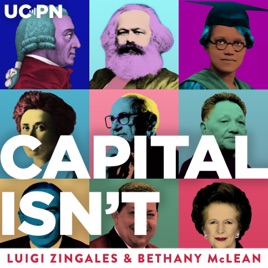
4.5
475
176
Capitalisn't
University of Chicago Podcast Network

4.6
379
152
سقراط مع عمر الجريسي
ثمانية/ thmanyah
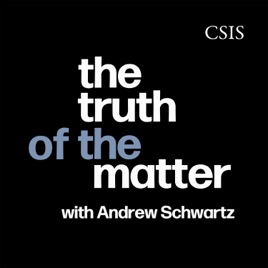
4.4
213
257
The Truth of the Matter
CSIS | Center for Strategic and International Studies
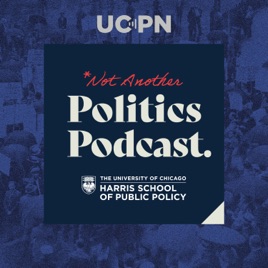
4.6
138
107
Not Another Politics Podcast
University of Chicago Podcast Network

5
48
14
Combat Learjet
Combat Learjet

4.7
204
726
The Fact Hunter
Delmarva Studios
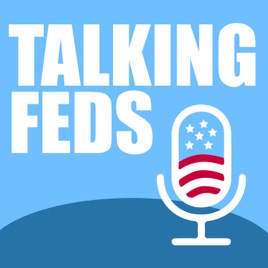
4.8
3695
286
Talking Feds
Harry Litman
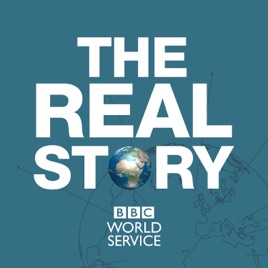
4.6
269
300
The Real Story
BBC World Service
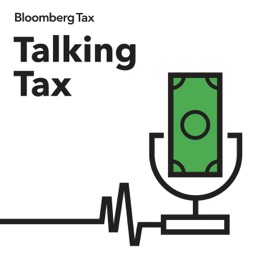
3.9
95
327
Talking Tax
Bloomberg Tax



